Digital Transformation and Technology in Social Services Award
Sponsored by

This award recognises a public authority or social services provider that has successfully implemented digital transformation and technology-driven solutions to enhance social services across Europe. By leveraging innovative digital tools, data analytics, AI or welfare technologies, the winning initiative must demonstrate a significant and measurable impact on service users, professionals, and the broader social care and social services system.
Examples of key areas of digital transformation and technology in social services:
- Enhancing Accessibility and Inclusion – Using assistive technologies, telecare, and digital platforms to ensure that social services are more inclusive for people with disabilities, older adults, and vulnerable communities.
- Improving Service Efficiency and Coordination – Implementing data-driven decision-making, interoperability between agencies, and digital case management systems to reduce administrative burdens and improve responsiveness.
- Empowering Service Users and Professionals – Providing digital tools, mobile applications, and e-learning platforms to enhance self-care for individuals and support professional development for social services professionals.
- Ensuring Ethical and Responsible Digitalisation – Embedding data privacy, cybersecurity, and AI ethics to protect the rights and dignity of service users.
- Predictive Analytics and AI for Prevention – Using big data, machine learning, and predictive analytics to anticipate risks, support early interventions, and enhance crisis management.
Special consideration is given to initiatives that:
- Improve service accessibility and inclusivity, ensuring that digital solutions benefit diverse and vulnerable populations.
- Enhance operational efficiency and effectiveness through automation of cross-service cooperation, AI, digital platforms, or data-driven decision-making.
- Empower service users and professionals, enabling greater self-care, independent living, or workforce support through digital innovation.
- Maintain ethical and responsible digital use, prioritising data protection, privacy, and transparent AI integration in social care.
- Are scalable and transferable, offering a model for digital transformation that can inspire adoption across different regions or service sectors.
Digital Transformation and Technology in Social Services Award 2025 Winner
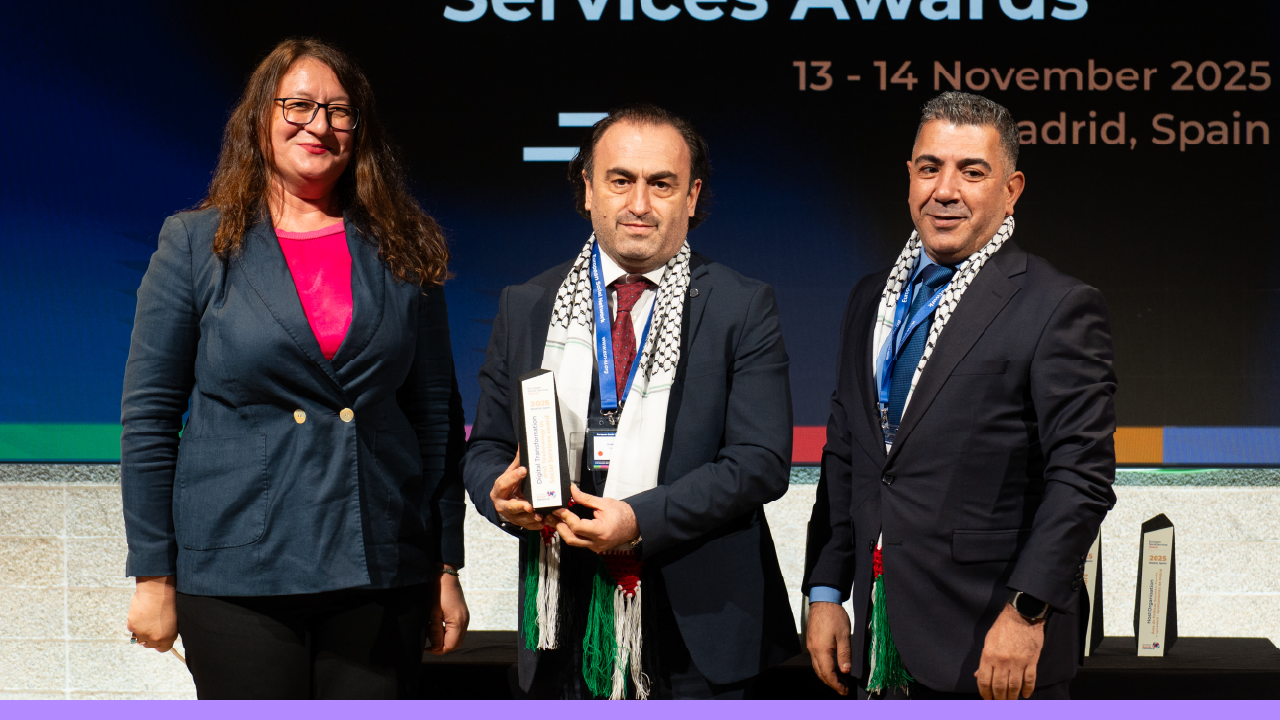
Title: “Bağ-Kart: A Digital Model for Efficient and Inclusive Social Assistance”
Organisation: Bağcılar Municipality and Istanbul Bakers' Association, Türkiye
Website: https://www.bagcilar.bel.tr/
Summary: Bağcılar Municipality is carrying out work on developing new social support models for the more effective and efficient delivery of social assistance. With a data municipalism approach, Bağcılar Municipality has developed new social support models and, in order to provide assistance in a systematic and innovative way, has integrated social support services with BağKart—a tool of the Digital Citizenship Project that creates a digital link between the municipality and citizens—and ensured the transition from a demand-based to a supply-based understanding of social support.
Within this digital business model, households in need are identified through data, and before the need even arises, access to social assistance is enabled through a physical card, mobile application, or web portal. Beneficiaries can choose products according to their needs from the Social Market, Charity Bazaar, or contracted bakeries. Each stage of the process is supported by short message (SMS) notifications, and during the 2023–2025 period, social support was provided with the delivery of 147,115 products from the Charity Bazaar to 29,134 households, and approximately 1,483,927 products from the Social Market to 42,524 households. The contributions of sponsors and philanthropists have strengthened the process, while the cooperation of the Istanbul Chamber of Bakers has supported the dissemination of the model at the neighborhood scale.
Digital Transformation and Technology in Social Services Award 2025 Nominees
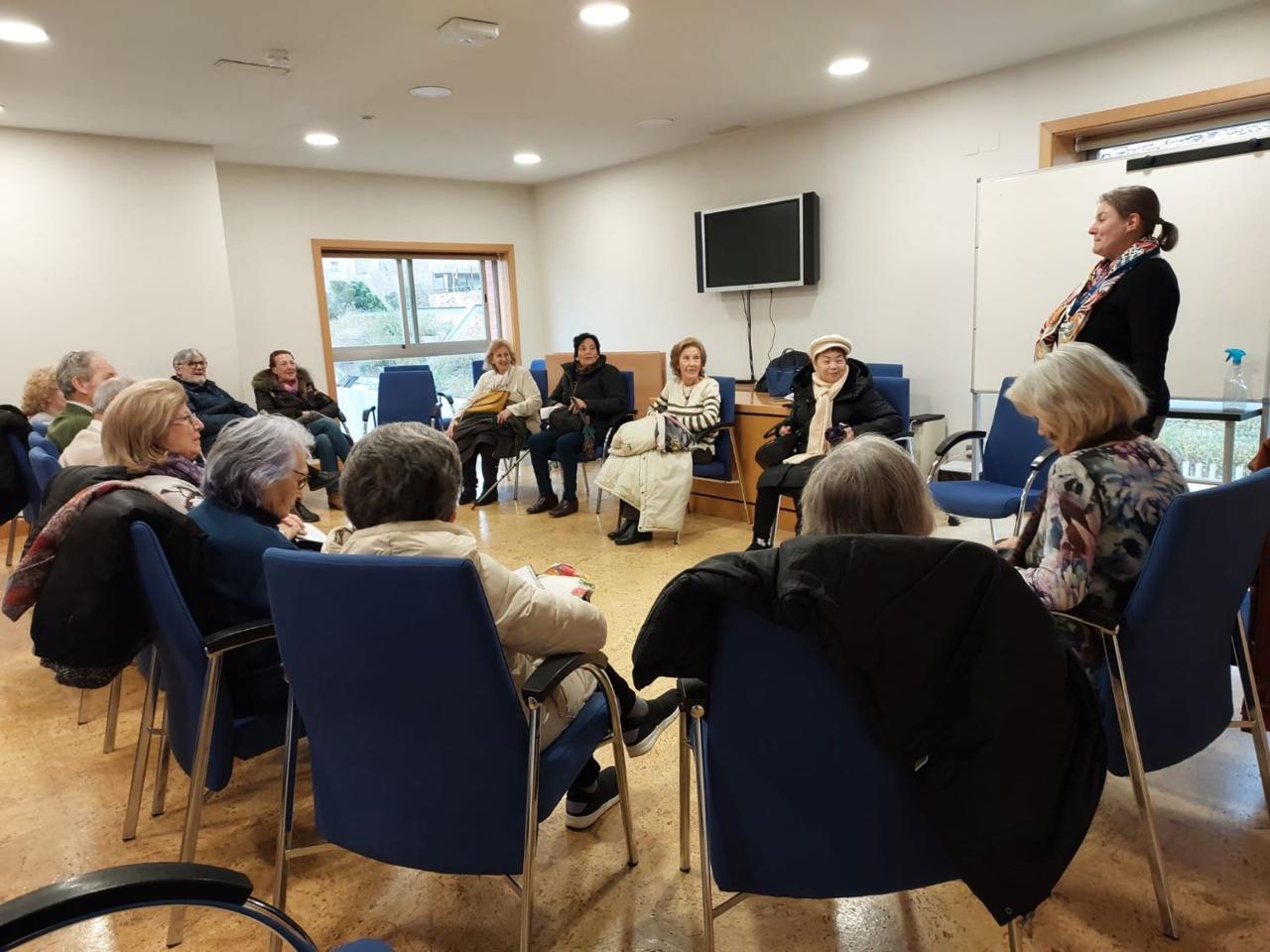
Title: “Paloma Project: Using AI to Detect Unwanted Loneliness”
Organisation: Madrid City Council - Government Area of Social Policy, Family and Equality, with support of Fundación Telefónica, Spain
Website: Paloma Project
Summary: In Madrid, where 21% of the population is aged 65 and over, it is estimated that around 10% of older people feel lonely. Against the backdrop of the city’s ongoing digitalisation project, and the recent development of a strategy to combat loneliness, the “Paloma Project” tackles these two priorities by using AI to detect unwanted lonesliness among individuals aged 75 and over. Through this project, an AI assistant realistically simulates the human voice to make phone calls to older people and to detect symptoms of loneliness. This technology asks targeted questions and offers follow-up support, linking the individuals to relevant municipal social services. In just 10 days, over 5,100 individuals in the target group were contacted, with one in three reporting symptoms of loneliness. More than 34% of the 2,000 individuals that completed the interview agreed to be referred to social services, leading to personalised interventions such as home visits, volunteer accompaniment, and participation in community workshops.
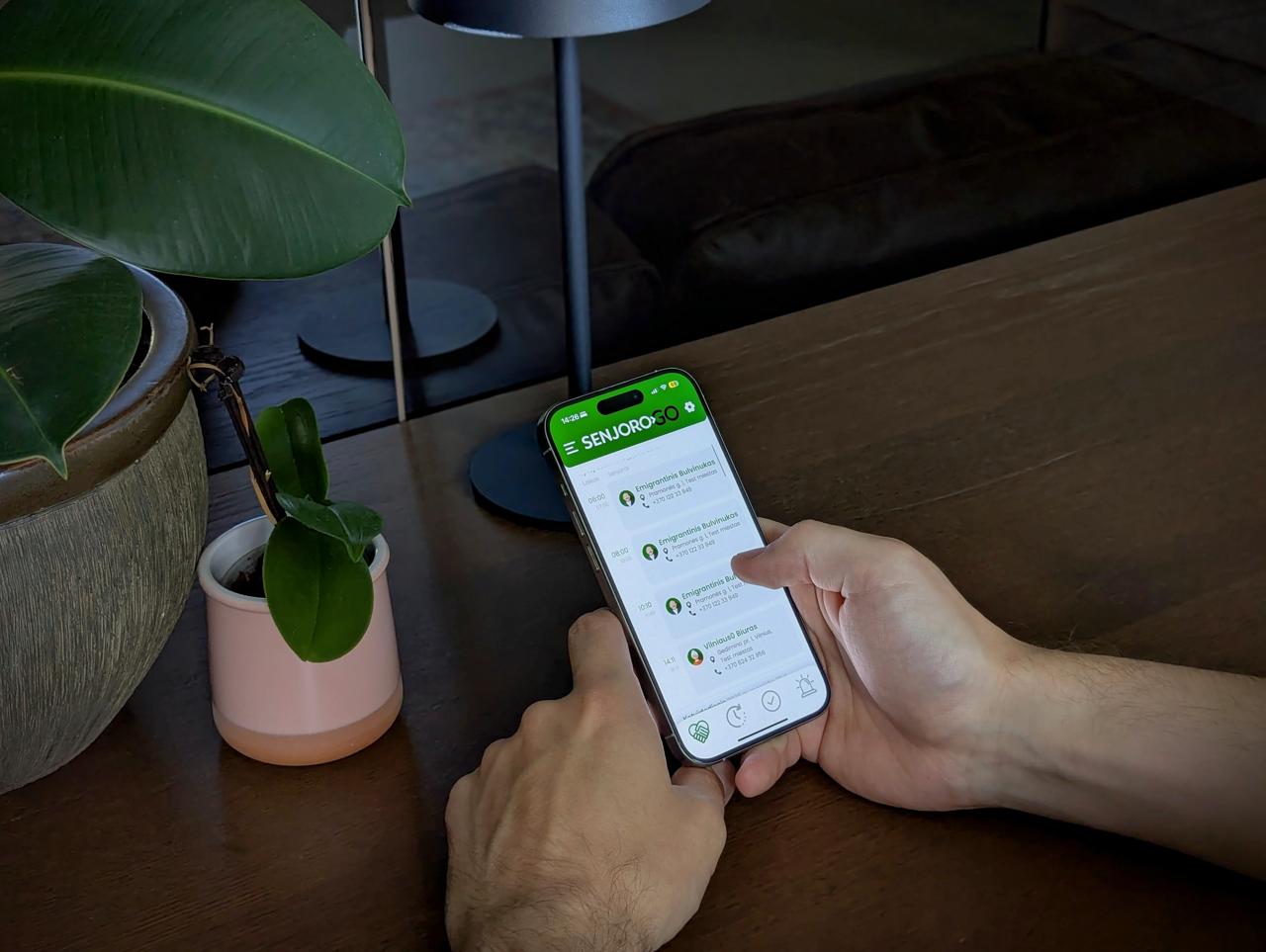
Title: “SenjoroGO: transparent and smarter home care delivery"
Organisation: VŠĮ Nacionalinis Socialinės Integracijos Institutas, Lithuania
Website: http://www.senjoro.lt/senjorogo-en/
Summary: The SenjoroGO project shifts traditional, often manual, processes into an integrated IT system that automates crucial functions, including work time tracking, activity logging, schedule management, and automated report generation. This digital leap eliminates paper-based documentation, reduces administrative overhead, and introduces real-time oversight of service delivery through GPS tracking and precise time/location stamping. The project aims to help caregivers and social workers redirect resources to direct client engagement and care. For example, institutions using SenjoroGO reported a 25-30% decrease in employee workload related to service administration. The project addresses the critical challenge of ensuring high-quality, efficient, and transparent home care services for an increasing older population, especially in contexts of limited public finances and staffing. SenjoroGO is used by more than 30 home care service providers, providing services for 6,000 people, and it aims to cover at least 70% of home care customers in Lithuania by 2029, reaching 21,000 people.

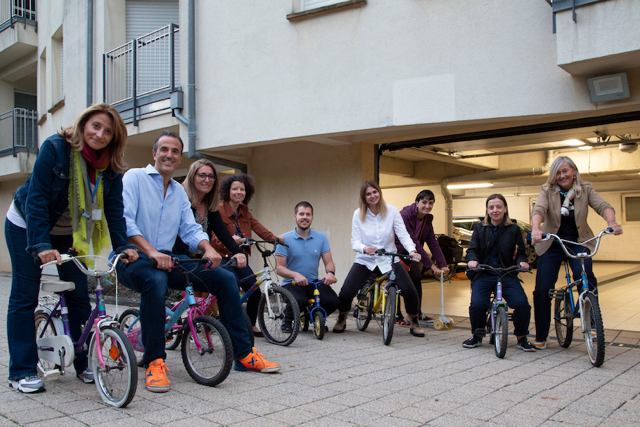
Title: “A Solidarity App Connecting Communities through Circular Giving and Tech for Good”
Organisation: Afrilanthropy, Luxembourg
Website: https://ridingtherainbow.com/
Summary: Riding the Rainbow is a tech-for-good platform that enables people to donate pre-loved items directly to refugees and vulnerable families. The app addresses material poverty, social exclusion, and environmental waste by enabling direct donations of preloved items to refugees and vulnerable families.
The project started as a response to the large number of child refugees escaping the war in Ukraine and is currently being scaled in other countries. The platform fosters empathy and inclusion by connecting donors and recipients, while also engaging citizens through real-time alerts for volunteering and solidarity events.
By promoting reuse, it reduces waste and supports a circular economy. Riding the Rainbow transforms charity into meaningful encounters, making giving more personal, impactful, and community driven. Riding the Rainbow has 3,000 users, enabled over 1,000 direct donations, and engages 40+ organisations.
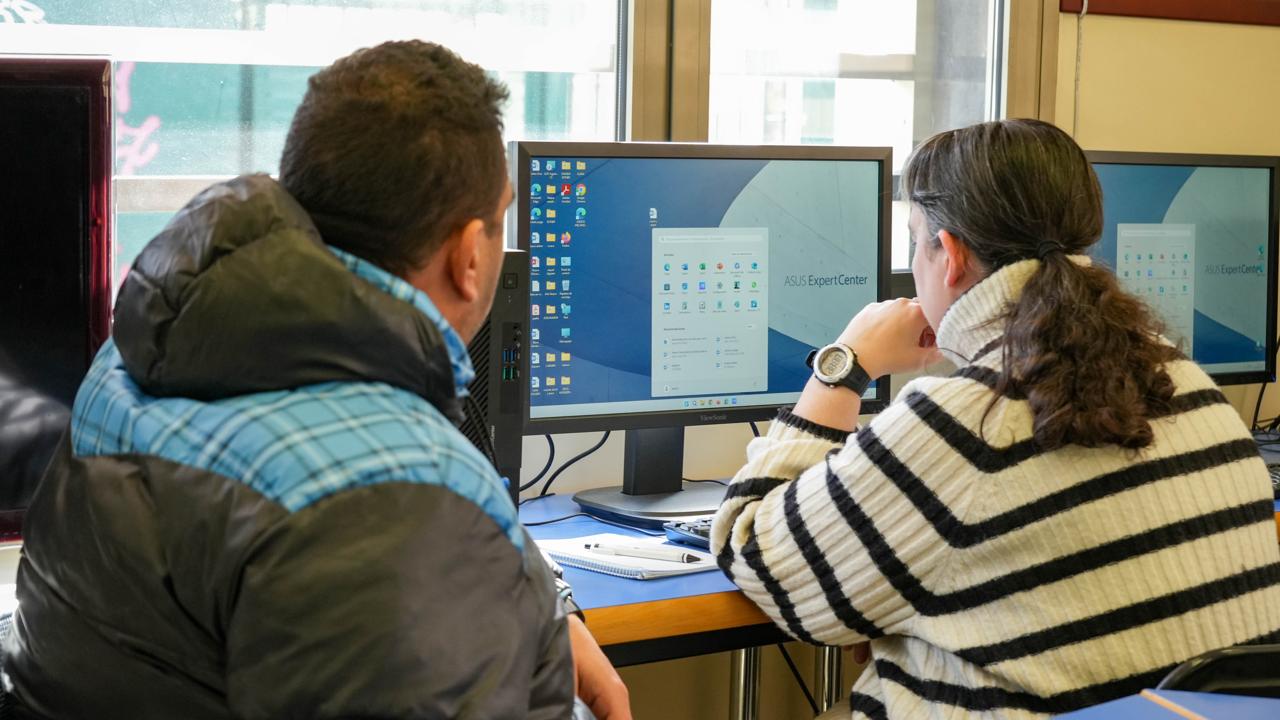
Title: “DIGISEM: Digital Innovation for Mental Health Support Services”
Organisation: Rey Ardid Foundation, Spain
Website: https://www.reyardid.org/ https://digisem.redisem.es/
Summary: The DIGISEM project involves a network of mental health organisations across 8 regions in Spain who have been piloting digital technologies in diverse care settings including residential, community-based, and training environments. It is an initiative financed by the Recovery, Transformation and Resilience Plan – Next Generation EU, with the support of the Ministry of Social Rights, Consumer Affairs and Agenda 2030. DIGISEM contributes to Component 22, Investment 2 of the Social Services of the Modernization Plan, focused on technological transformation, innovation, training, and strengthening care for children.
DIGISEM has implemented more than 635 technologies as a pilot projects in care settings as diverse as residences, supervised apartments, day centers, and psychosocial therapy centers, benefiting a total of 708 users of mental health services. Taking advantage of the experience of social workers, mental health professionals, and technological support teams, DIGISEM has introduced tools such as smart speakers, tablets, wearables, and immersive projectors. Along with these innovations, training programs and co-design processes have been launched to reduce the digital gap, improve technological infrastructure, and ensure continuous training for both professionals and users.
Currently reaching over 1,000 individuals, the project has embarked on the challenge of transforming mental health support services through digital technologies that enhance autonomy, quality of life, and personalised care for people with mental health conditions.
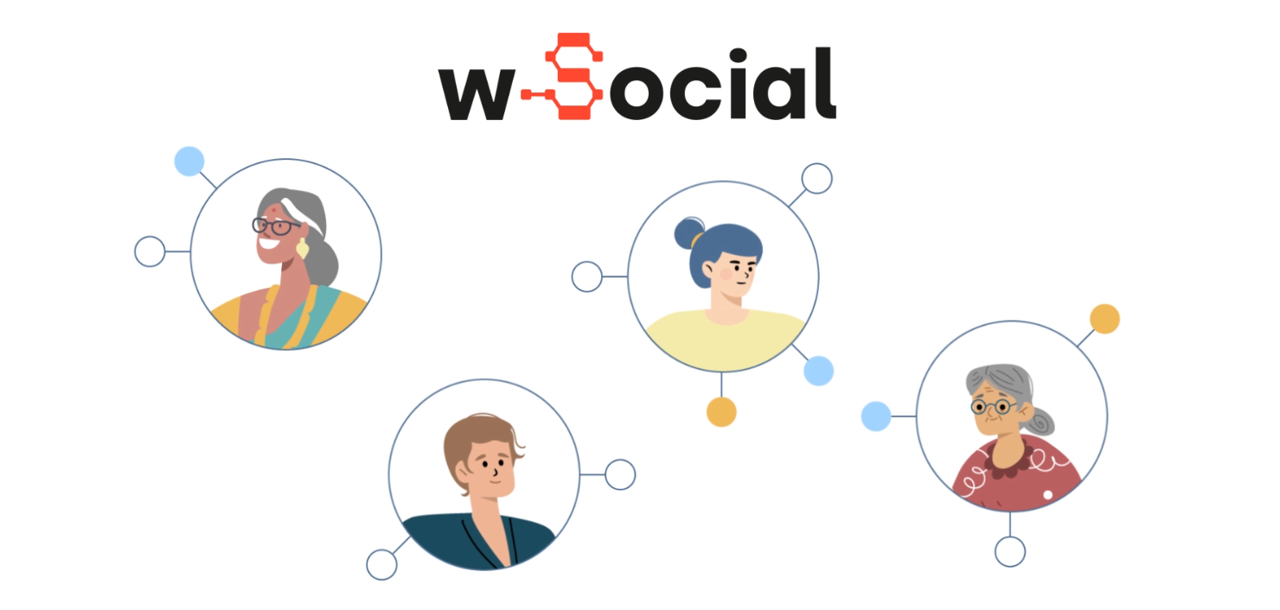
Title: “wSocial: Driving Catalonia’s Digital Transformation of Social Care”
Organisation: Regional Government of Catalonia - Department of Social Rights, Spain
Website:/More information here: https://dretssocials.gencat.cat/ca/inici/index.html
Summary: wSocial aims to become the core tool driving the digital transformation of basic social services in Catalonia. It consists of a platform for data organisation that leverages standardised professional language for categorising social needs, observations and contextual factors. This allows for consistent data capture, better coordination and decision-making across territories, thus enabling more human, responsive, and personalised social care interventions. The platform is also equipped with a speech-to-text transcription feature, reducing time spent by professionals on documentation, as well as an automated translation tool, supporting linguistic and cultural accessibility, and a 360° data viewer, providing real-time access to relevant information from other systems such as health, education, and employment, therefore supporting professionals in their day-today work. Finally, an AI-powered recommendation engine complements the platform, analysing interview content to identify needs and suggest relevant services or benefits. Currently in the pilot phase, its upcoming deployment in the Catalonian region is expected to improve professional workflows, data standardisation, and the system’s preparedness to deliver more integrated and person-centred services.

Title: “Tackling Language Barriers in Health and Social Care”
Organisation: Southern Health and Social Care Trust (SHSCT)
Website: https://southerntrust.hscni.net/
Summary: This initiative tackles health and social care inequalities caused by language barriers, particularly affecting migrants and minority ethnic communities, in Northern Ireland’s Southern Health and Social Care Trust area. By introducing Vasco V4 digital translator devices alongside cultural competency training and community engagement, the project enables real-time multilingual communication in hospitals, emergency departments, GP practices, and community settings. Initially piloted with three devices, this has now increased to 130 devices, improving dignity, confidentiality, and access to services for non-English speakers, including refugees from countries such as Syria, Afghanistan, and Ukraine. Evaluations have showed that 95% of staff felt the devices improved patient contact and 84% reported better service access. Supported by the Department of Health and local NGOs, the project is now in its scaling-up phase, offering a transferable model for inclusive digital transformation in health and social care.
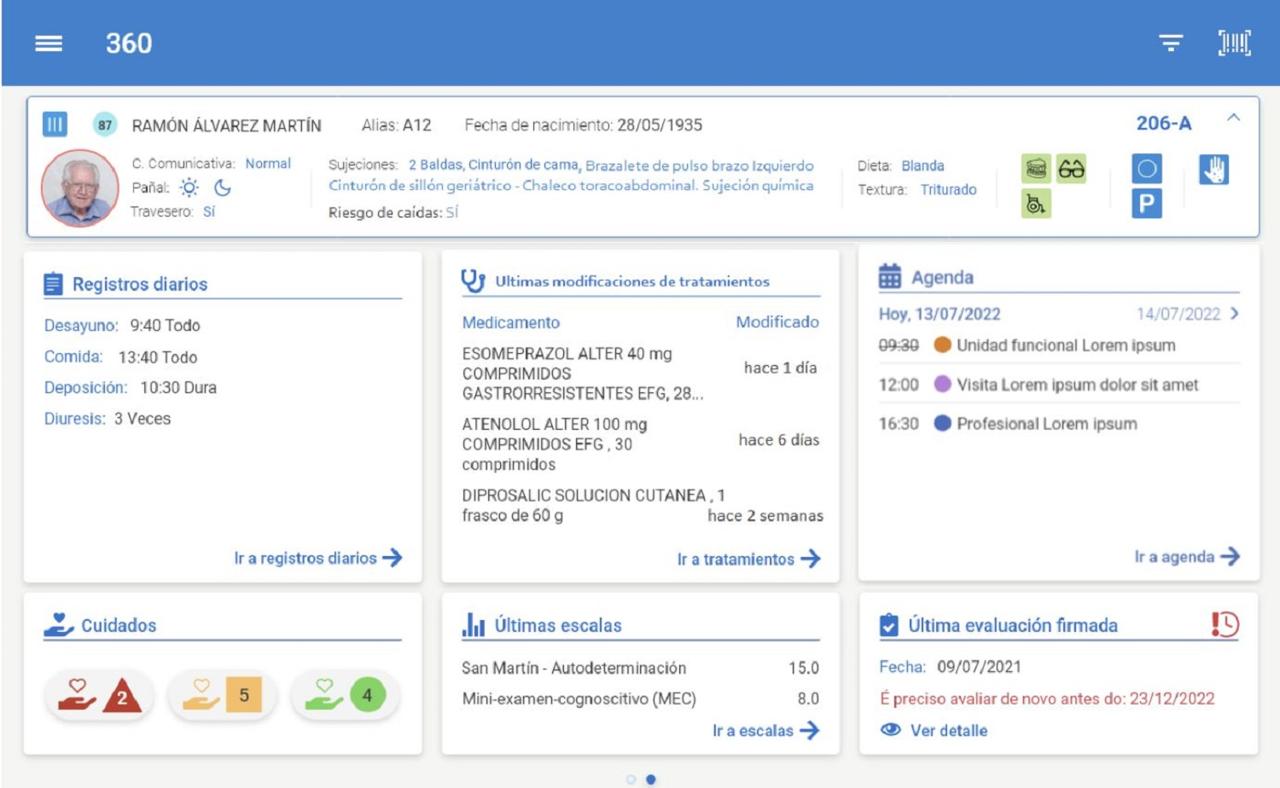
Title: “CENPOS”
Organisation: Regional Government of Galicia - Department for Social Inclusion, Spain
Website: https://www.eipa.eu/epsa/cenpos-project/
Summary: CENPOS is a large-scale digital transformation programme enhancing person-centred care in nursing homes and day centres across Galicia, Spain. Developed by the regional government, it integrates social and healthcare services through an advanced digital ecosystem covering five key areas: clinical support, operational management, telecare, health data integration, and analytics. The system supports over 30,000 people annually and has a direct impact on around 4,000 residents. It includes more than 50 functional modules, from real-time monitoring to medication management. Early results show faster admission notifications (a 60% improvement), greater access to health data (an 80% improvement), reduced errors, and stronger prevention of frailty through increased follow-ups and multidisciplinary evaluations. Supported by EU funds and regional co-financing, CENPOS boosts professional efficiency and user safety while setting a benchmark for scalable, technology-enabled long-term care.